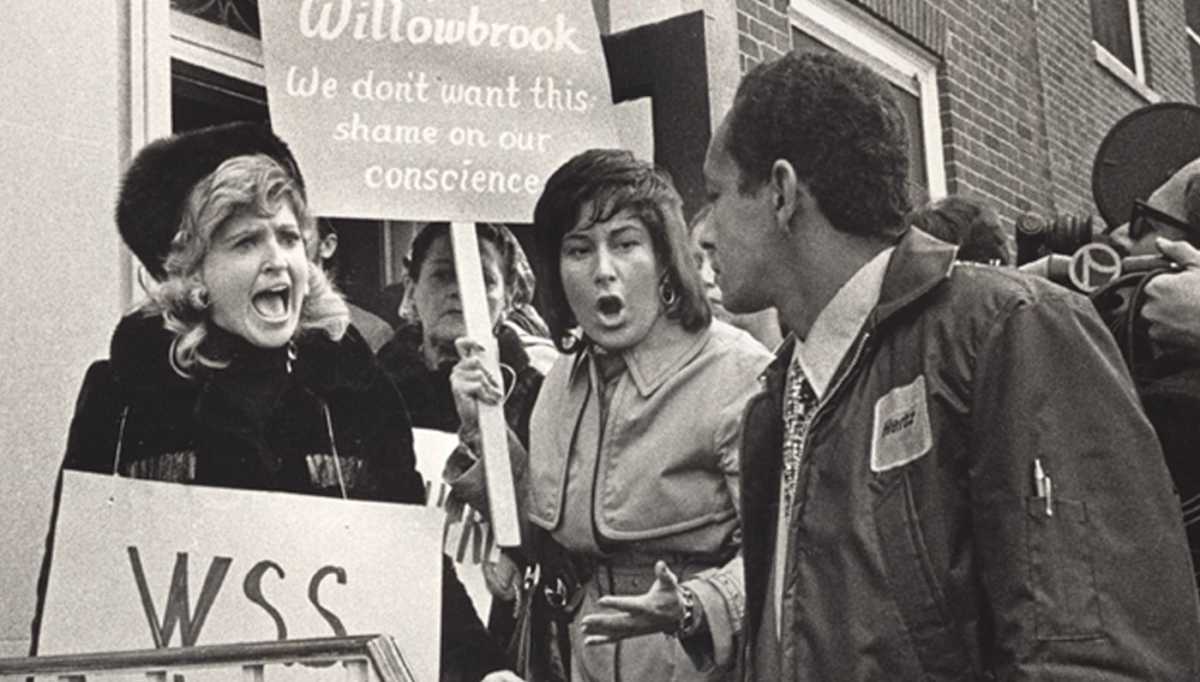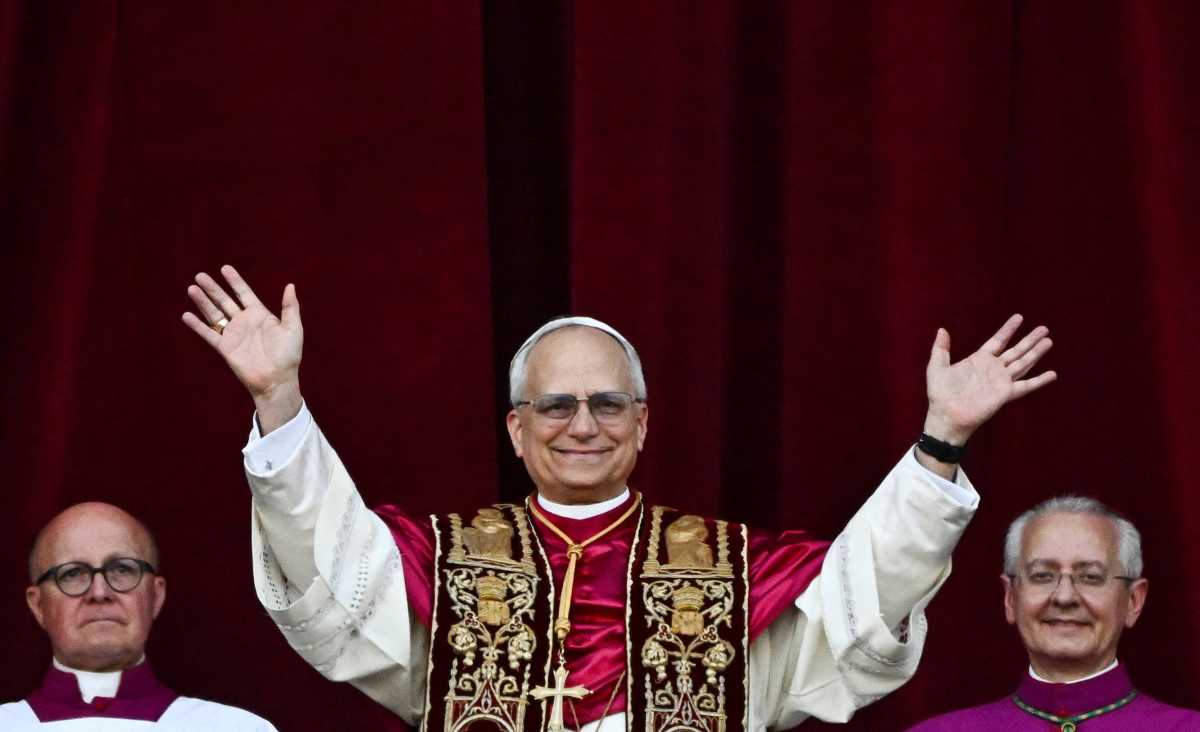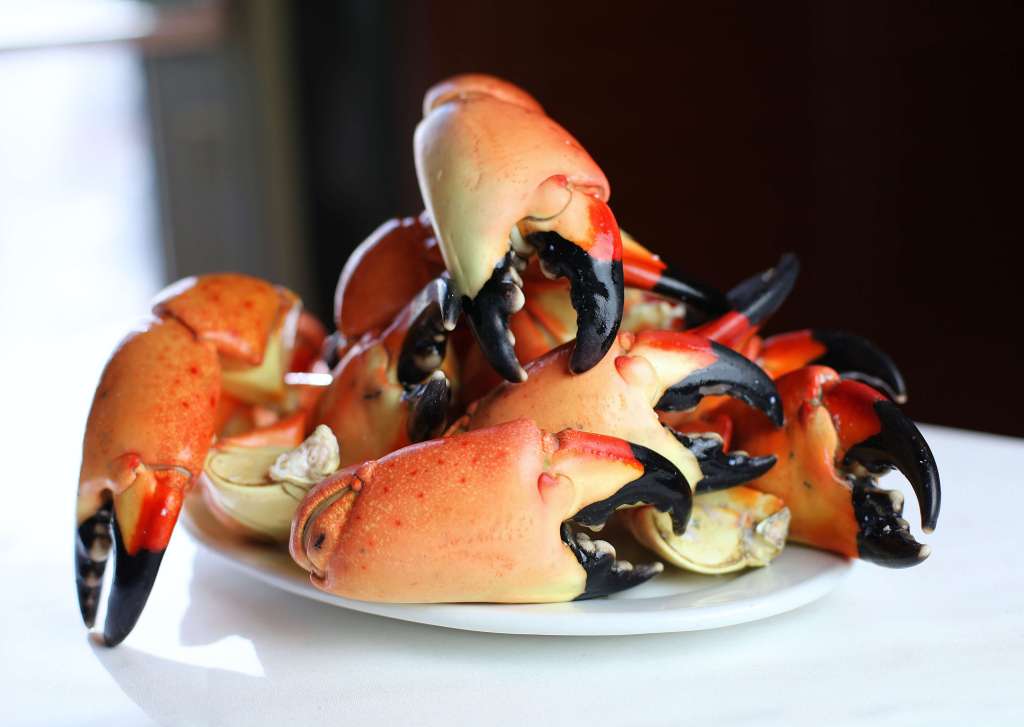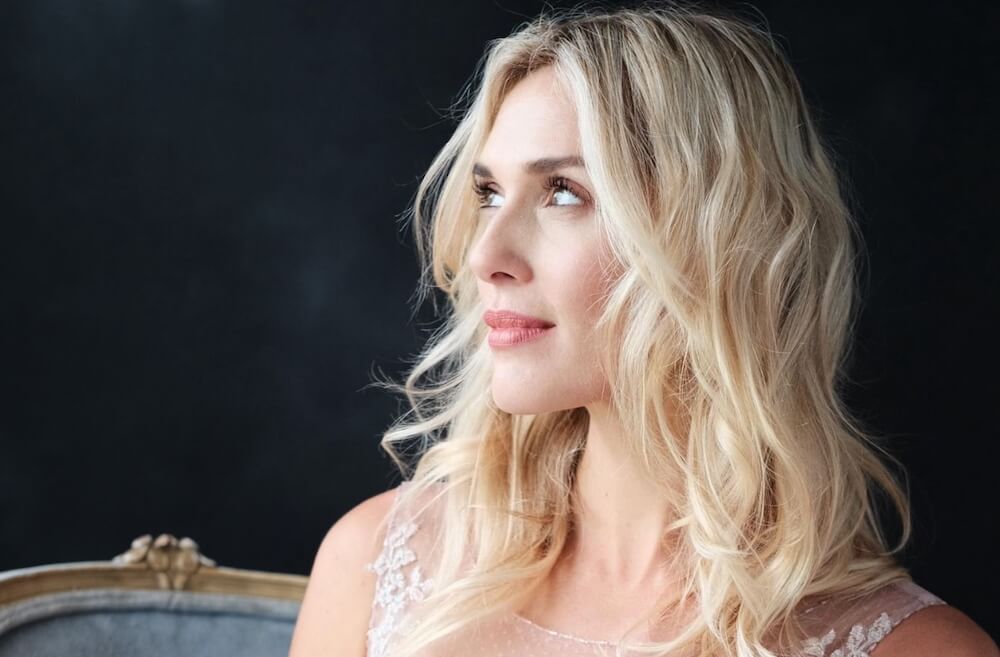Bozenna Gilbride: What Hate Looks Like
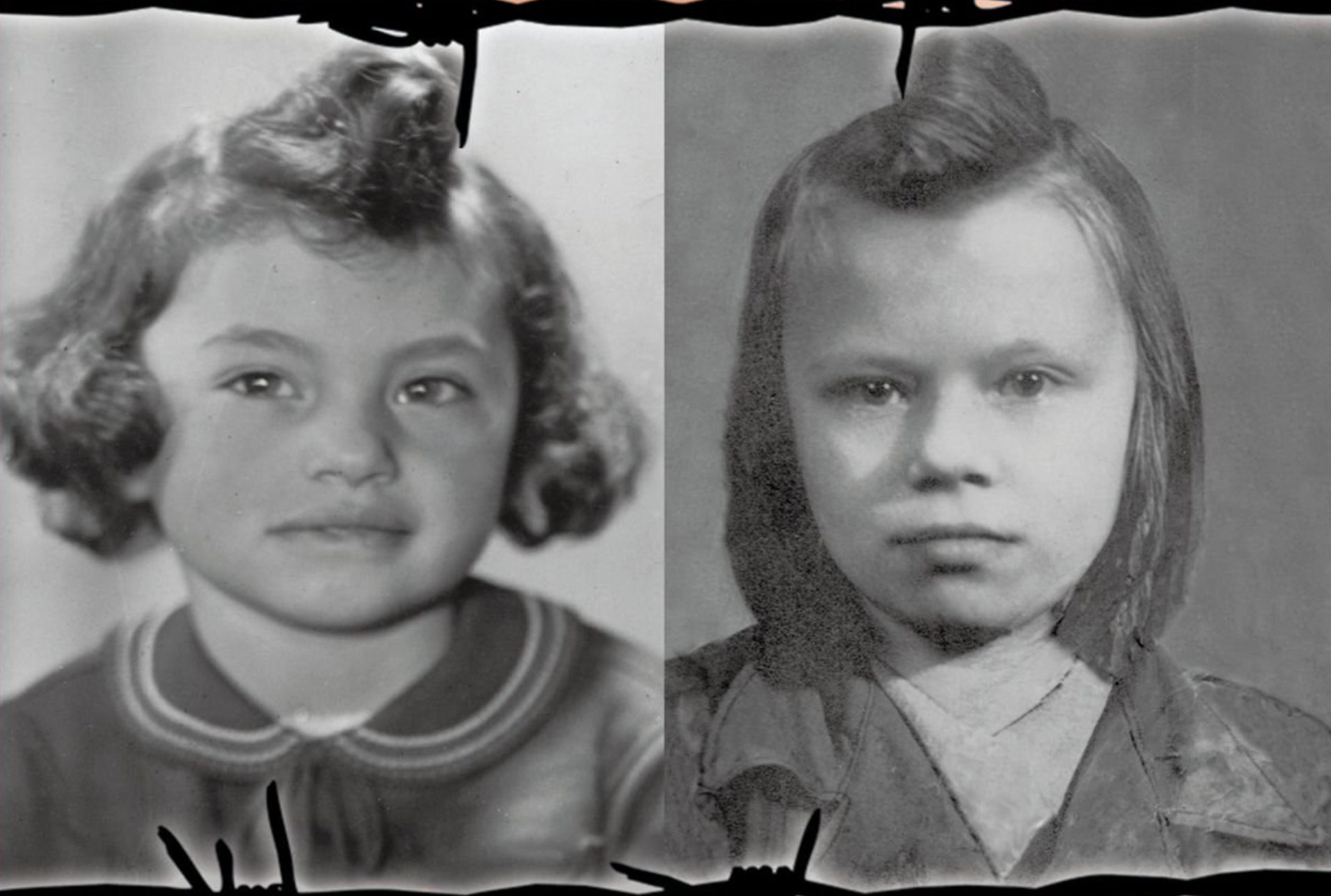
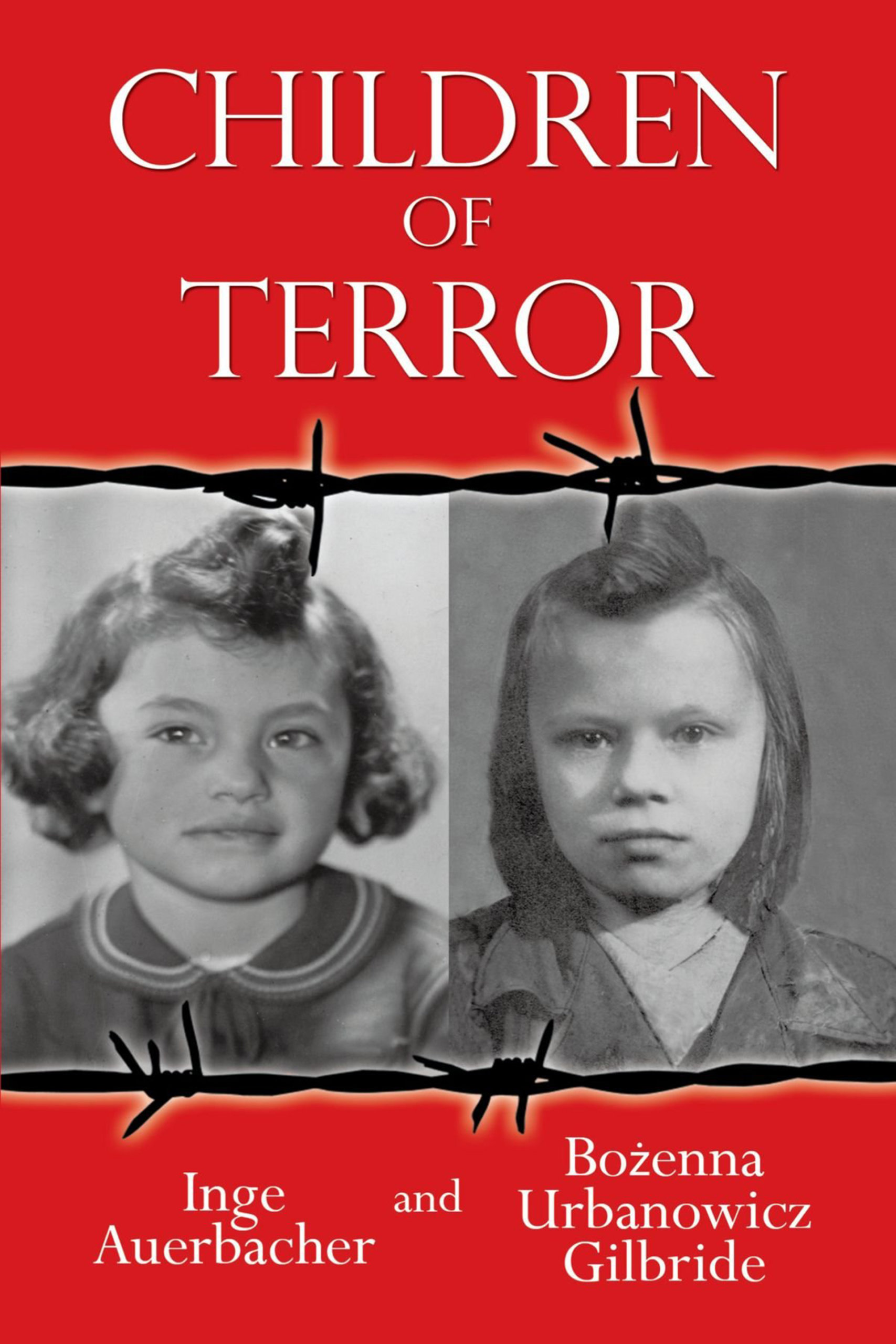
A beautiful home in the woods of Southampton offers a moment of tranquil respite as Bozenna Urbanowicz Gilbride stands on her deck, handfeeding a trio of furry baby deer. One moves in for a nice head-scratching.
It’s like a scene from a Disney movie, but Gilbride is not a princess. She is one of a handful of Polish Roman Catholic Holocaust survivors, and the song she sings is one of remembrance.
“I was speaking at schools, universities, wherever they wanted me to speak,” she said. On one of these occasions, she bonded with a woman the same age, a German Jewish woman named Inge Auerbacher. Auerbacher tried to convince Gilbride to co-author a book about their similar yet separate experiences, “but I wasn’t ready to relive them,” said Gilbride, who became emotional even recalling her first exchange with Auerbacher.
Eventually, Auerbacher succeeded, and the two wrote “Children of Terror” in 2009, their testimony as young girls, born in the same year, of different faiths and traditions, but who both survived unimaginable horrors during the reign of the Third Reich. The book is divided into two separate stories, with pictures of two young girls on the cover. “That serious one is me,” Gilbride said with a laugh.
“It’s used in schools, alongside ‘Diary of Anne Frank,’” Gilbride said. She noted that her story broadens the conversation, since, as the population ages and those who remember pass on, most schoolchildren — those who are taught about the Holocaust at all — believe that it was only Jews who were targeted during World War II.
“This is not true,” she said emphatically. “It was Poles, and gypsies, and anyone who was different.”
In 1943, when Bozenna was nine, Poland was divided between Nazi occupation, and the Soviets, who came from the East, “where I lived,” she said. Under Communist occupation, “we were not supposed to go to church. We went anyway,” she said. “In school I remember we weren’t allowed to observe Christmas, but the Communist inspectors would come to our school and ask, ‘Children, who gives you candy?’ And we were taught to shout, ‘Papa Stalin gives us candy!’ They would throw candy at us for giving the proper answer, and the teachers were very careful to teach us what to say, to protect us. God forbid a child should give the wrong answer,” she recalled.
Although they were poor, she remembers her mother having her bring food to a shed behind their farm, down by the river, “and I didn’t question it. A parent would never tell a child dangerous things — a child might blab, we tell the truth.” Later she found out that her father was hiding Jewish people.
“The worst time was 1943, the height of the murders of Jews and Poles in that area,” she said. “Gypsies, Jehovah’s witnesses, they were all killed,” she said simply. That’s when she was deported to Germany and ended up in a labor camp, Chemnitz, where she developed tuberculosis and was made to work on the fields with nothing but rags wrapped around her feet.
Gilbride has authored a second book, “Waiting for Mama.” Her mother, Janina Urbanowicz, was arrested and taken from her four children during the war, and lived through the atrocities inflicted upon her at several concentration camps to finally be reunited with her family in the United States more than a decade later. “It is still my most painful memory,” Gilbride recalled. “The day I lost my mother, and the suffering I went through as a result of that.”
Both books are available in local stores or online, also as e-books.
Gilbride and her husband, Richard, have been married for 62 years and have lived in Southampton for 22 years. They have four grown children. And she gets to feed the deer who come up on her deck, the fawns gazing in through the sliding doors as she speaks about the overwhelming fear she lived through.
Bozenna Gilbride is still suffused with passion to speak at schools, to warn against the onset of the hate and bigotry based on different races and religions.
“It’s so important to tell the whole story of the Holocaust,” Gilbride said, choking back tears. “I will never stop. Today it’s you, and then you, and then you. That’s what hate does,” she said. “It eats up people. Children need to know what hate did, does, and will continue to do if it is allowed to flourish.”
bridget@indyeastend.com
